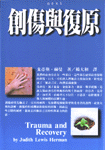 |  |  |
在風化業、色情行業和家庭中,這些相同的技術也被使用來壓制女性。在組織性的犯罪活動方面,鴇母和A片製作人,有時候會用脅迫的方式來教導新人。使用系統化的脅迫方式使女性淪入風塵,而稱之為「調教seasoning」。即使在家中,毆打者不屬於任何較大的組織,也沒有被人正式教導過這些技術,但是他卻似乎不斷地重塑這些技術。心理學家蕾諾‧沃克(Lenore Walker)在她有關被毆女性的研究中觀察到:虐待者的脅迫技術「儘管因人而異,卻依然非常類似。」(《創傷與復原》頁103)
接續「脅迫憲章Chart of Coercion(上)」、「脅迫憲章Chart of Coercion(中)」沒有翻譯完的部份。
Occasional Indulgences
偶施小惠
* Provides motivation for compliance
提供順從的動機
Leaders of abusive groups often sense when members are making plans to leave and may suddenly offer some kind of indulgence, perhaps just love or affection, attention where there was none before, a note or a gesture of concern. Hope that the situation in the church will change or self doubt ("Maybe I'm just imagining it's this bad,") then replace fear or despair and the members decide to stay a while longer. Other groups practice sporadic demonstrations of compassion or affection right in the middle of
desperate conflict or abusive episodes. This keeps members off guard and doubting their own perceptions of what is happening.
當成員計畫脫離時,這些團體的頭頭常能敏銳地感覺到,而可能突然給予某些恩惠(或許只是愛或情感、以前未曾有的關注、作勢關心)。希望情況有所改變或自我 懷疑(「或許只是我把它想成這麼壞」)取代了恐懼或絕望,使得成員再度留下。一些團體則會在令人絕望的衝突或虐待時,不定時的給予同情或情感。這使得成員失去戒心,並且對自己對現況的理解產生懷疑。
Some of the brainwashing techniques described are extreme, some groups may use them in a disciplined, regular manner while others use them more sporadically. But even mild, occasional use of these techniques is effective in gaining power.
一些極端的洗腦技巧,已被一些團體有系統的使用,有些團體則偶爾為之。但即使是偶爾稍微的使用這些技巧,也能有效地獲得權力。
Warning Signs:
警訊:
Be concerned if you have had an ongoing desire to leave a church or group you believe may be abusive, but find yourself repeatedly drawn back in just at the moment you are ready to leave, by a call, a comment or moment of compassion. These moments, infrequent as they may be, are enough to keep hope in change alive and thus you sacrifice years and years to an abusive group.
要留心於一個你認為傷害你,而持續想離開,但發現自己總在緊要關頭因為團體的召喚、意見或同情而退縮留下的團體。這些關懷的時刻不多,但足夠讓你抱持希望,而為這團體年復一年的持續犧牲。
Devaluing the Individual
貶低個人
* Creates fear of freedom and dependence upon captors
讓個人對自由恐懼並依賴控制者
* Creates feelings of helplessness
建立無助感
* Develops lack of faith in individual capabilities
使個人對能力缺乏自信
Abusive leaders are frequently uncannily able to pick out traits church members are proud of and to use those very traits against the members. Those with natural gifts in the areas of music may be told they are proud or puffed up or "anxious to be up front" if they want to use their talents and denied that opportunity. Those with discernment are called judgmental or critical, the merciful are lacking in holiness or good judgment, the peacemakers are reminded the Lord came to bring a sword, not peace. Sometimes efforts are made to convince members that they really are not gifted teachers or musically talented or prophetically inclined as they believed they were. When members begin to doubt the one or two special gifts they possess which they have always been sure were God-given, they begin to doubt everything else they have ever believed about themselves, to feel dependent upon church leaders and afraid to leave the group. ("If I've been wrong about even *that*, how can I ever trust myself to make right decisions ever again?").
頭頭常能敏銳地瞧出成員自傲的才能,並利用這些才能來對付成員。有音樂天賦的人如果要有所表現可能被講說太自傲了、或愛露鋒芒,而遭拒絕。有見識的人被說成吹毛求疵,仁慈的人則是缺乏聖潔或良好判斷力,和事佬則被提醒神帶來戰爭,而非和平。有時也會做一些動作讓成員相信他們並非好老師、或具有音樂天分、或其他自認有的才幹。當成員開始懷疑天賦的一兩項特質,他們也開始對過去所有的自我觀照存疑,而對團體頭頭感到依賴,並害怕離開團體。(「如果我連這種事都錯了,我怎能相信自己有能力做對抉擇呢?」)
Warning Signs:
警訊:
Unwillingness to allow members to use their gifts. Establishing rigid boot camp-like requirements for the sake of proving commitment to the group before gifts may be exercised. Repeatedly criticizing natural giftedness by reminding members they must die to their natural gifts, that Paul, after all, said, "When I'm weak, I'm strong," and that they should expect God to use them in areas other than their areas of giftedness. Emphasizing helps or service to the group as a prerequisite to church ministry. This might take the form of requiring that anyone wanting to serve in any way first have the responsibility of cleaning toilets or cleaning the church for a specified time, that anyone wanting to sing in the worship band must first sing to the children in Sunday School, or that before exercising any gifts at all, members must demonstrate loyalty to the group by faithful attendance at all functions and such things as tithing. No consideration is given to the length of time a new member has been a Christian or to his age or station in life or his unique talents or abilities. The rules apply to everyone alike. This has the effect of reducing everyone to some kind of lowest common denominator where no one's gifts or natural abilities are valued or appreciated, where the individual is not cherished for the unique blessing he or she is to the body of Christ, where what is most highly valued is service, obedience, submission to authority, and performance without regard to gifts or abilities or, for that matter, individual limitations.
團體不喜歡成員施展才幹。在成員才能發揮前,建立類似新兵訓練中心的嚴格要求,以求先獲得成員對團體的承諾。藉由提醒成員必須拋棄天賦,持續地批評其天資。要成員記住使徒保羅曾說:「當我軟弱,我反而堅強」,而他們被期待的是平凡的那一面。強調對團體的幫助或服務是晉升幹部的先決條件。這可能變成類似這 樣的形式:想服務的人先去打掃廁所或清潔環境再說;想在合唱團唱歌的人先試著在小朋友面前唱;不管什麼十八般武藝,都要先藉由確實參與各項集會和活動(例 如捐獻十分之一所得)來顯現忠誠,才可獲准獻醜。根本不屌你信了幾年教、年紀多大、多德高望重、或才幹有多特別。這規定一視同仁,有效地貶低每個人至一文 不值,沒有人的才能被稱許,唯有服務、順從、服從權威、不展現才幹,才是最受讚許的行為。
--------------------------------------------------------------------
This article re-published from reFOCUS Network.
"Local Church" research site
lcinfo@ugcs.caltech.edu
Last updated 20 April 1996
相關文章:
危險家暴的30項徵兆
你被洗腦了嗎?—脅迫憲章Chart of Coercion(上)
你被洗腦了嗎?—脅迫憲章Chart of Coercion(中)
為什麼不要跟人爭論政治、宗教議題?——我們先用情緒下決定,再用理性找理由
誰家會養出恐怖份子?
為什麼網路上容易出現極端性的言論?
如何輕易地讓人道德沈淪?
電影「惡魔教室」(The Wave;Die Welle)




0 意見:
張貼留言